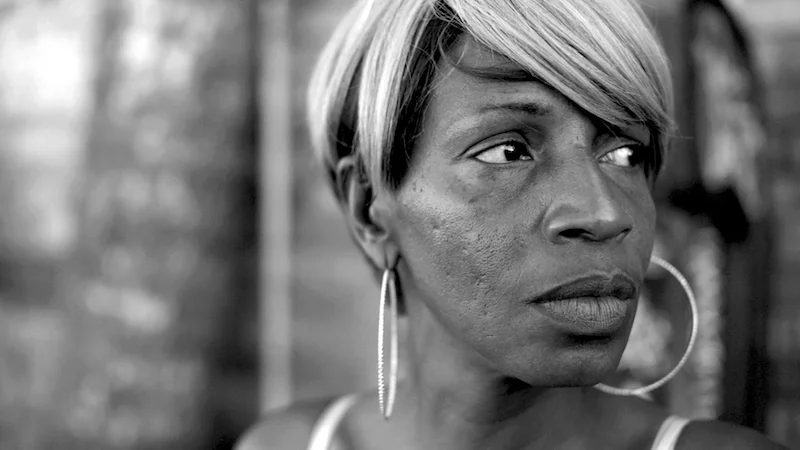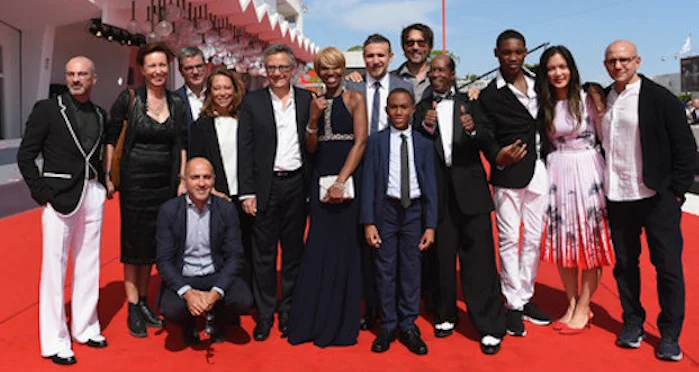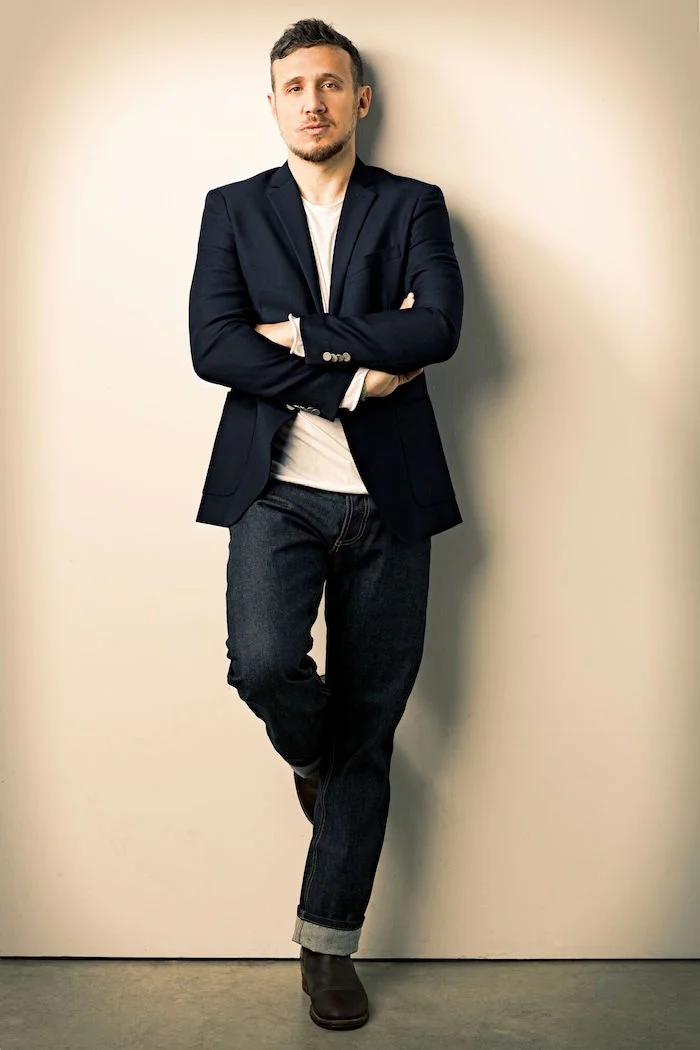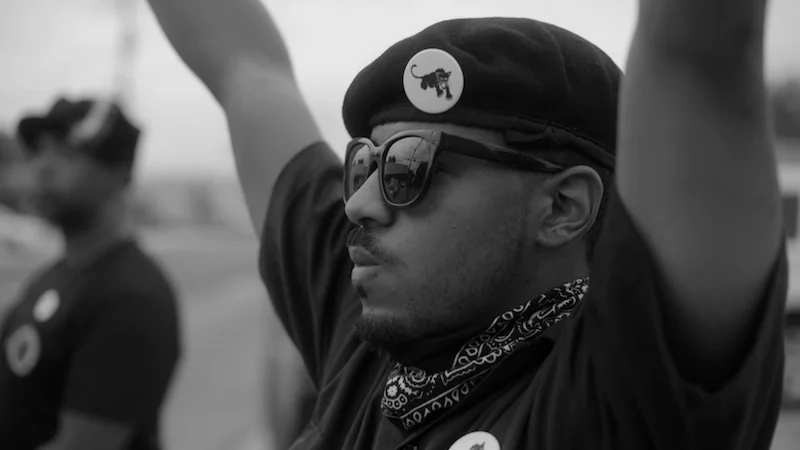“There is no more fight for equality, lesser inequality has become the new equality. ”
Of all the films we watched at this year's Venice Film Festival Roberto Minervini's was the most important.
For two very specific reasons. One, it's a documentary, and while many narrative films did explain my own personal struggle as a modern woman in today's world, those fictional stories can be dismissed by their critics as simply made up. 'What You Gonna Do When the World's On Fire?' cannot, since it's real life, it's in your face and it's downright true.
Point number two follows closely my first point, in that while watching the press preview of Minervini's film, which premiered in Competition at the festival, I saw more of my colleagues shift in their seat and -- after what appeared like much inner debate and a prolonged anxiety -- leave the theater than ever before. The answer is not a reflection on the quality of 'What You Gonna Do...' which is visually stunning, features a terrific soundtrack and makes its two hours duration fly by in what seemed like fifteen minutes.
Rather, it's an indication of what seems to be the biggest problem in America at the moment -- our militantly liberal left. Like anything American, it has contaminated the rest of the world.
In his previous film 'The Other Side' the Italian-born filmmaker anticipated the rise of Donald Trump and with this latest project, I'm hoping he will bring to the forefront the New Black Panther Party. In one of the most touching moments in a film that had me holding a pen and notebook in one hand and tissues in the other, members of the Panthers go out to feed the homeless living on the streets of Baton Rouge Louisiana. And most of their kindest handouts, their most human interactions are with down on their luck white men. Now that's the America I know and love! A microcosm that is slowly being eroded away by political correctness.
Through some wondrous protagonists, like the stoic and beautiful Judy, featured in the photo above, Chief Kevin and the Mardi Gras Indians, their costumes and chants filling up the screen, and the brothers Ronaldo and Titus "T", along with the Panthers including National Party Chair Krystal Muhammad, Minervini tells a story of America that's far from the American dream. In a particularly infuriating scene towards the end of the film, the police attack and arrest Muhammad and some in her crew, with Minervini's camera rolling. Have we really become so OK with violence and disrespect that even a camera won't stop the bad behavior? It's a question I really hate the answer to.
Catching up with Minervini was a lesson and a treat. He may not like his film being called "angry" because it's so much more than that and possesses cinematic poetry within its strong message, but anger is definitely a part of the filmmaker's life. And in America, it is what is needed to finally put an end to the institutionalized racism, sexism and classism instilled in our very DNA.
Where does the title come from?
Roberto Minervini: The title comes from a spiritual. It dates back to the 19th Century.
How was it screening the film with your protagonists here in Venice?
Minervini: It was emotional, cathartic, it was touching to see how each of them reacted to different moments in the film in different ways. Their reactions were stronger in the parts of film that didn’t include them.
There is this sense of sharing either the beauty of the moment or the tragedy of the moment which is part of the collective conscience of African Americans in America. Reacting to drug addiction for young men whose mom may have already warned them “don’t become an addict,” and the way he reacts to the scene of Judy confessing she was once a drug addict…
Their emotions and reactions were really intertwined which made for a poignantly collective experience.
Filmmaker Roberto Minervini
Did you feel touched by the whole experience?
Minervini: Yes, for a moment I thought I was going to faint. We had a warm reception, applause and after standing up, I needed to sit down for a second. I was being overwhelmed by the emotions because it was really not about the film, not about me, not about Venice in Competition… It was really about these people being extremely in touch with each other’s and their own experience. It was so cathartic and dizzying for me.
What took you to the US to make this film?
Minervini: I moved to the US for love. I had a girlfriend at the time and she’s now my wife, twenty year later. I had a hard time, I had a love hate relationship with the country. Love was human love and the hate was everything else — socio-political hate. In order to survive in America and keep the love alive, I had to let go of all my prejudices and preconceived ideas, I had to embrace America and become American, really. Live it from within and observe it from within.
Twenty years ago I planted the seeds for what has become my work of observation. Observation and the dynamics of the different layers of American society.
Do you think you possess a different sensitivity towards American society as a European filmmaker?
Minervini: There are two parts of me, there is the American self which is very integrated, especially right now in the culture of the American south. I speak the slang, I live in Houston, Texas, I’ve embraced culture, I love the culture -- I feel Texan. And then there is the European self, which carries all the baggage. I don’t think being an outsider helped me as a filmmaker because I think I need to be an insider to do the work I do, to be credible, to be reputable and to be trusted. But what happened I think I’m still very aware of all the dynamics within the American society because at some point they were new to me. And they were shockingly new to me. Whereas the average American is very complacent and stagnant in their view of society. I don’t think they see the constant fluctuations and changes in all parts of life.
Americans take America for granted.
Why did you make 'What You Gonna Do...' now?
Minervini: My other film 'The Other Side' anticipated the election of Donald Trump and the resurgent of the right wing movement. And I was surprised by the surprise of liberal progressive America about the election of Trump which I had taken for granted. It was so evident!
People were convinced that there was no chance and I said to them, “what kind of America are you observing?” Apparently I was right, and as I can see now there is this indignation and this surprise, the shock, as if Trump doesn’t represent the Republican fanbase and the Republican party. Which living in Texas, I see that Trump is the voice of the Republican party! He’s unfiltered and what people always wanted to say. And on top of it, he uses social media, linking and connecting even more with the younger generation.
I’m appalled by this distant, austere indignation by the liberal progressive thinkers of America. So how is this pertinent to what I was saying about the America that can’t even see its own self? Because one of the biggest reasons I made this film is that I realized that progressive America to which I belong, has accepted a level, a threshold of tolerance which includes inequality. Today we progressive American are content and satisfied with a society that incorporates minorities, that protects women more and we, white males, are content with that.
There is no more fight for equality, lesser inequality has become the new equality.
Which angers me enormously because I’m a father of mixed race children. At least I can catch it first hand and I fight my little fights socially, in schools etc.
Is that our biggest threat?
Minervini: I think if you have right wing extremism which has become so explicit, so uncompromising, so clear, so unafraid, honest, and then you have the counterpart which is this fairness and righteousness of the progressive faction of society, which hides actually the dirty laundry of inequality, it bales it under this image of equality of acceptance of tolerance as long as minorities stay as such. Then you are creating a discrepancy, this is the little wave of the tsunami of hate, of intolerance, and that’s why I’m not surprised that Trump came to power.
A member of the New Black Panther Party for Self Defense
The other way is also politically correct which is not how people really think inside themselves.
Minervini: I can’t wait to bring this film to NY because that’s the liberal stronghold, of the extremely self righteous and I’ve already got feedback about the insignificance of the Black Panther movement.
But that’s what they’ve been saying since the Sixties about the Panthers.
Minervini: Yeah, and they fail to acknowledge the fact that the Panthers are very numerous. The problem is many of then are incarcerated, like 33% of Black people. I know for a fact, since I work with the Panthers that they are a very large movement, if we go into jails and talk to people in jail. When you refuse to acknowledge this you do a disservice to the fight for equality. The Panthers fight it in a nonviolent way, with harsh terms which we can accept because that's what we do… We don’t incarcerate Trump, we don’t incarcerate people who call women dogs. But we, the liberals, don’t accept the language of the Panthers!
If we accept the language of the Panthers it’s non violent and their screams are all about equality and reparation.
Do people ever tell you you can’t do what you do?
Minervini: Oh, people accuse me of cultural appropriation. That’s a whitewashing problem. Without even knowing what cultural appropriation means… There is mountains of literature about that. We talk about cultural appropriation when there is no representation of the other. I don’t even know where to begin to say this is not a case of that.



